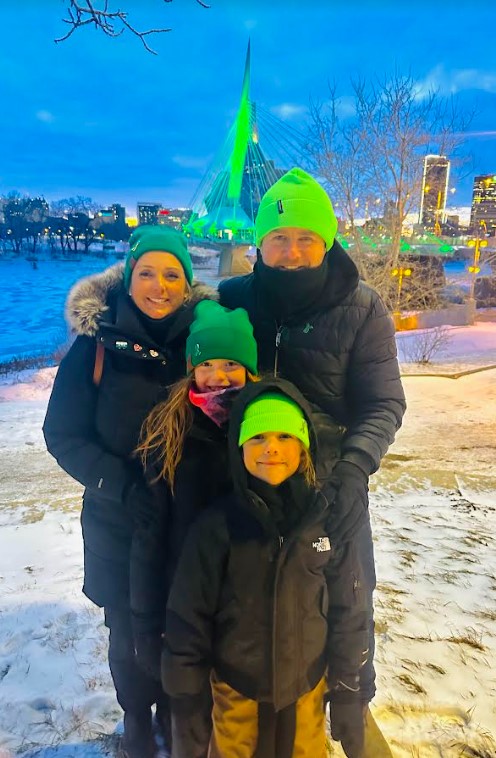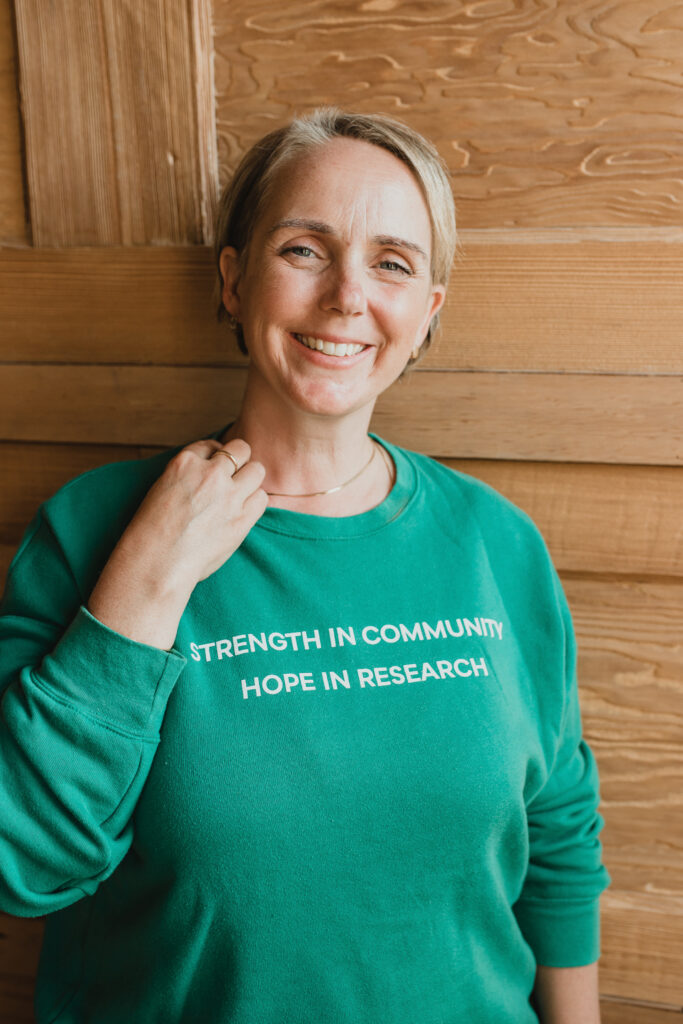Biomarker Testing and Additional Opinions offers Strength and Hope
In the summer of 2021, Cynthia began experiencing mild heartburn—an unusual symptom for her. When she visited her family doctor, it was dismissed as perimenopause. But Cynthia couldn’t shake the feeling that something wasn’t right. After a few weeks, she pressed for further testing, and an ultrasound revealed a mass on her liver.
Over the next three months, Cynthia underwent various tests, scans, and consultations before receiving the life-altering diagnosis of cholangiocarcinoma, a rare cancer of the bile duct. It was December 2021 when a liver surgeon confirmed her condition and scheduled her for a liver resection just ten days later.
Initially, Cynthia and her team were optimistic; the surgery seemed successful, with clear margins and no lymph node involvement. However, a recurrence in the summer of 2022 changed everything. That’s when Cynthia decided to seek outside opinions—a key aspect of her care and a turning point in her treatment journey.
“Getting additional opinions was absolutely critical,” Cynthia shares.
After consulting specialists at Princess Margaret Hospital in Ontario, she was advised to undergo biomarker testing. Biomarker testing is crucial in personalizing care for a complex cancer like cholangiocarcinoma, as it helps identify specific mutations that can guide targeted therapies, offering more precise and effective treatment options tailored to each patient’s unique tumor profile.
While the initial treatment for a targeted mutation didn’t yield results, the advice she received to seek further opinions proved invaluable. A third opinion at MD Anderson Cancer Center in Houston led to further testing and the discovery of other targetable mutations. Cynthia’s current treatment has been successful, and she continues to advocate for herself and value the medical team that she trusts will collaborate to ensure the best path for her.


“I’m fortunate that my team in Manitoba has been willing to collaborate, recognizing the value of shared experience and the transfer of knowledge,” she reflected. “The goal of keeping me here and being treated in Manitoba while collaborating with others has resulted in me being as well as possible for as long as possible.”
To those hesitant about seeking a second opinion, Cynthia encourages patients to consider the collaborative aspect rather than viewing it as one doctor over another. Many care teams are open to working together for the best possible outcomes. She also recommends that patients and their families consider all the other times when they seek more than one point of view or area of expertise.
Cynthia’s journey highlights the importance of collaboration in her care and her engagement with the Cholangiocarcinoma Foundation. Seeking multiple opinions allowed her medical team to come together and provide more personalized and effective care.
“Those second and third opinions are why I’m here today,” she says.
This sense of community extends beyond her medical care. Cynthia found strength in the support from her family and neighbors, who rallied around her when she needed it most. Now, as she connects with the Foundation as a CholangioConnect mentor and through webinars and learning opportunities, she sees firsthand the influence of collaboration on a broader scale. The CCF’s motto—“Strength in Community, Hope in Research”—resonates deeply with Cynthia, who has benefited from both.
By involving herself in the community, Cynthia contributes to the growing knowledge base and offers hope to other patients. Her story is a powerful reminder that when we come together—whether through medical teams, patient support networks, or research initiatives—we find strength and hope in the face of rare and challenging diseases.